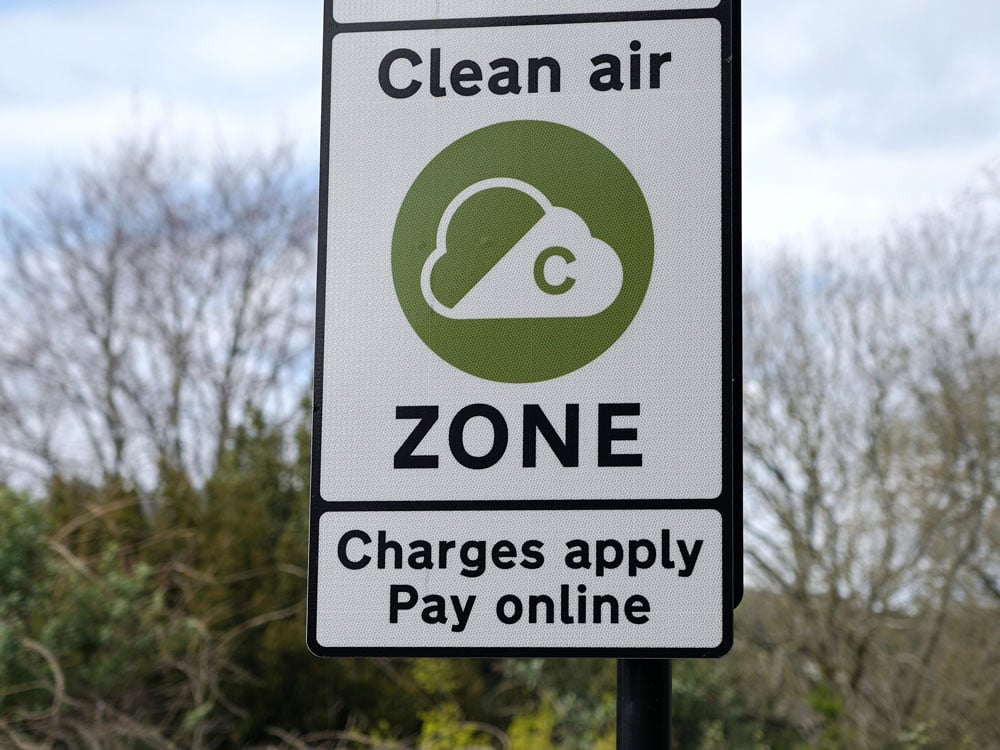CAZ Check
Clean Air Zones (CAZ) are designated areas aimed at reducing air pollution. Check if your vehicle is compliant with CAZ requirements to avoid penalties and contribute to cleaner air. Stay informed and drive responsibly with our CAZ check tool.
- £30k data guarantee
- Rated Excellent
- 8,000,000+ scans completed
- Instant report

CAZ Check
Clean Air Zone (CAZ Check)
Clean Air Zones (CAZ) in the UK are areas where measures are taken to improve air quality, primarily by reducing pollution from vehicles. These zones can charge certain types of vehicles that do not meet specified emission standards, with the aim of encouraging the use of cleaner transport.
As of the latest information, active Clean Air Zones in England include cities like Bath, Birmingham, Bradford, Bristol, Portsmouth, Sheffield, and Tyneside (Newcastle and Gateshead). Each of these cities has specific charges for non-compliant vehicles, with the charge varying depending on the vehicle type and the city. For instance, charges can range from £7 for taxis in Bradford to £100 for larger vehicles like buses and coaches in Bristol.
In London, there's the Ultra Low Emission Zone (ULEZ) and Low Emission Zone (LEZ). The ULEZ, which covers a larger area including the North and South Circular roads, charges non-compliant vehicles £12.50 per day. The LEZ, primarily targeting larger vehicles, has been in operation since 2008 and covers all London boroughs, with daily charges between £100 and £300 for non-compliant vehicles.
Scotland has introduced Low Emission Zones (LEZs) in cities like Glasgow, Edinburgh, Dundee, and Aberdeen, with Glasgow being the first to enforce these zones. Unlike CAZ and ULEZ in England, Scotland's LEZs do not offer an option to pay a daily charge for non-compliant vehicles; instead, they impose a penalty of £60 a day.
In Wales, there are currently no charging clean air zones, and there are no immediate plans to introduce any. However, Cardiff Council has revisited the issue due to concerns over carbon emissions and air pollution.
It's important to note that the effectiveness of CAZs on air quality can be influenced by various factors, including weather patterns and improvements in vehicle emissions standards. While some studies have shown a reduction in air pollution following the introduction of CAZs, this is part of a longer-term downward trend in air pollutants.
For the most current and detailed information on Clean Air Zones, their locations, charges, and compliance standards, it's recommended to visit official government resources such as GOV.UK.
Frequently asked questions about CAZ Check (Clean air zone)
What is a Clean Air Zone (CAZ)?
A Clean Air Zone is a designated area where measures are taken to improve air quality by reducing pollution from vehicles. It typically involves setting emission standards for vehicles and implementing charges or restrictions to encourage the use of low-emission vehicles.
Why are Clean Air Zones implemented?
Clean Air Zones are implemented to address air pollution, which has detrimental effects on public health and the environment. By reducing emissions from vehicles, CAZs aim to improve air quality and create healthier living environments for residents.
Where are Clean Air Zones being introduced?
Clean Air Zones are being introduced in various cities around the world. Some notable examples include London, Birmingham, Leeds, and Bath in the UK. Each city may have its own specific criteria and requirements for vehicles entering the zone.
Do all vehicles have to pay to enter a Clean Air Zone?
The charging scheme in Clean Air Zones varies depending on the city and the type of vehicle. In some CAZs, only high-polluting vehicles that do not meet emission standards are subject to charges. Low-emission vehicles, such as electric cars, may be exempt from charges.
How can I check if my vehicle is compliant with a Clean Air Zone?
You can use online our online free CAZ checker or official GOV.UK checker to check if your vehicle is compliant with the Clean Air Zone requirements. These tools typically require you to input your vehicle’s registration details for verification.
Are there any exemptions for Clean Air Zone charges?
Exemptions from Clean Air Zone charges can vary between cities. Common exemptions include electric vehicles, hybrid vehicles, and certain categories of disabled vehicles. It’s essential to check the specific rules and exemptions for the Clean Air Zone you plan to enter.
Are there any plans to expand Clean Air Zones to other cities?
As awareness of the importance of clean air grows, many cities are considering or actively planning to introduce Clean Air Zones. Expansion to other cities will depend on local air quality concerns and the commitment of authorities to tackle pollution effectively.